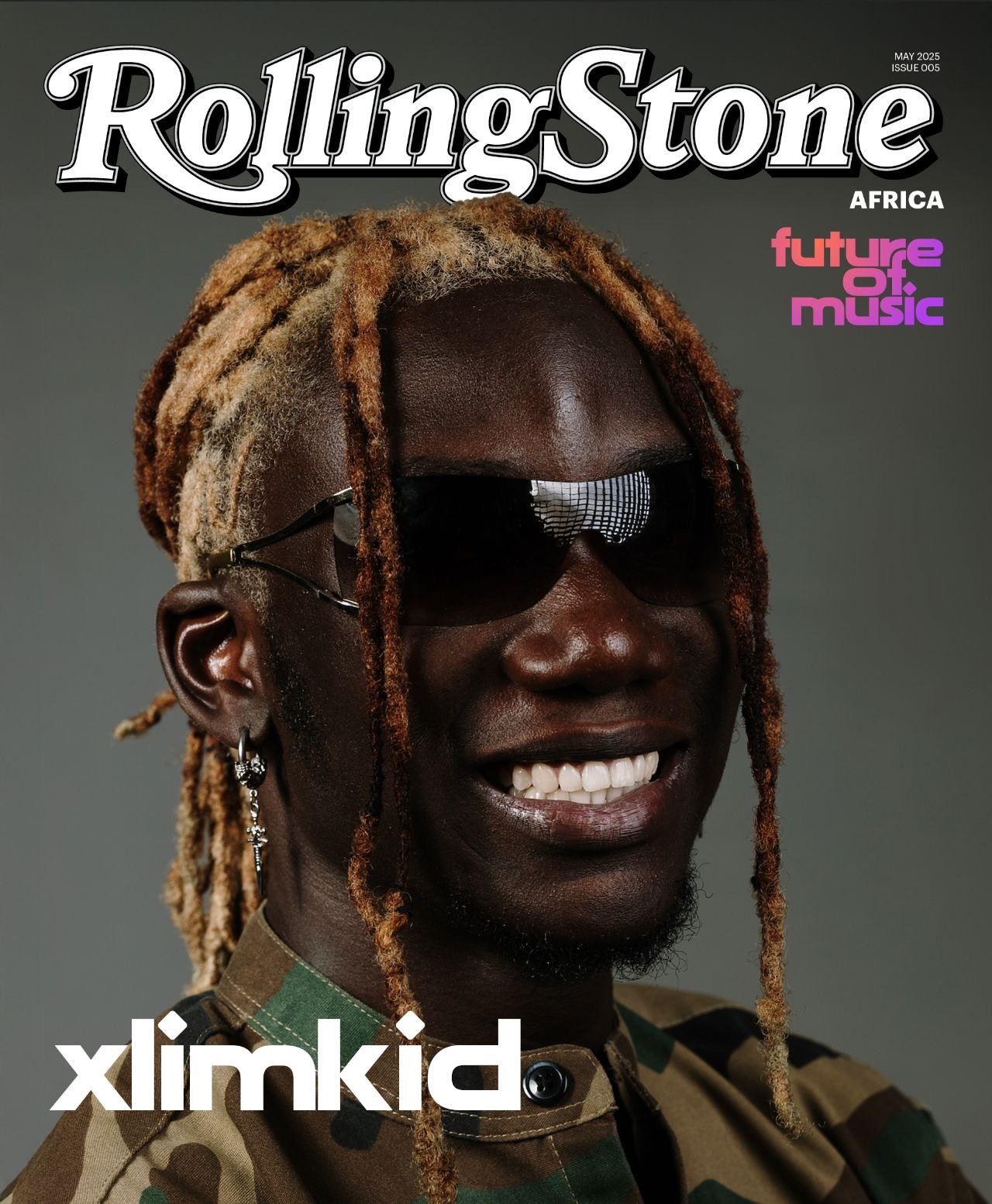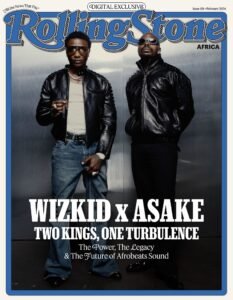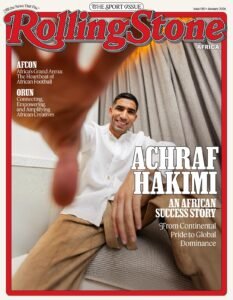“I don’t want to say I’m the chosen one,” Xlimkid meekly tells me. But every part of his story from birth to his presence in Ghana’s music scene indicate an ordination orchestrated by a divine force. “My mind is so powerful that anything I think about, I know that it’s going to happen regardless of how long it might take.”
This conviction is what has seen him go from a doe-eyed teenager in Kumasi who hit the scene in 2022 with his single “Alone” to catching the attention and collaborating with some of the biggest names in Ghanaian rap all before the release of his debut album.
At just 21 years old, Xlimkid, born Henry Boakye, possesses a rare gift for commandeering his emotions, laying it bare on his tracks. For a trapstar, meshing the hardcore nature of the genre with emotive musings may seem oxymoronic. However, Xlimkid toes those lines gracefully wielding it as his superpower.
Selected as one of Rolling Stone Africa’s Future Of Music honourees, the fast-rising rapper shares his thoughts on this milestone.
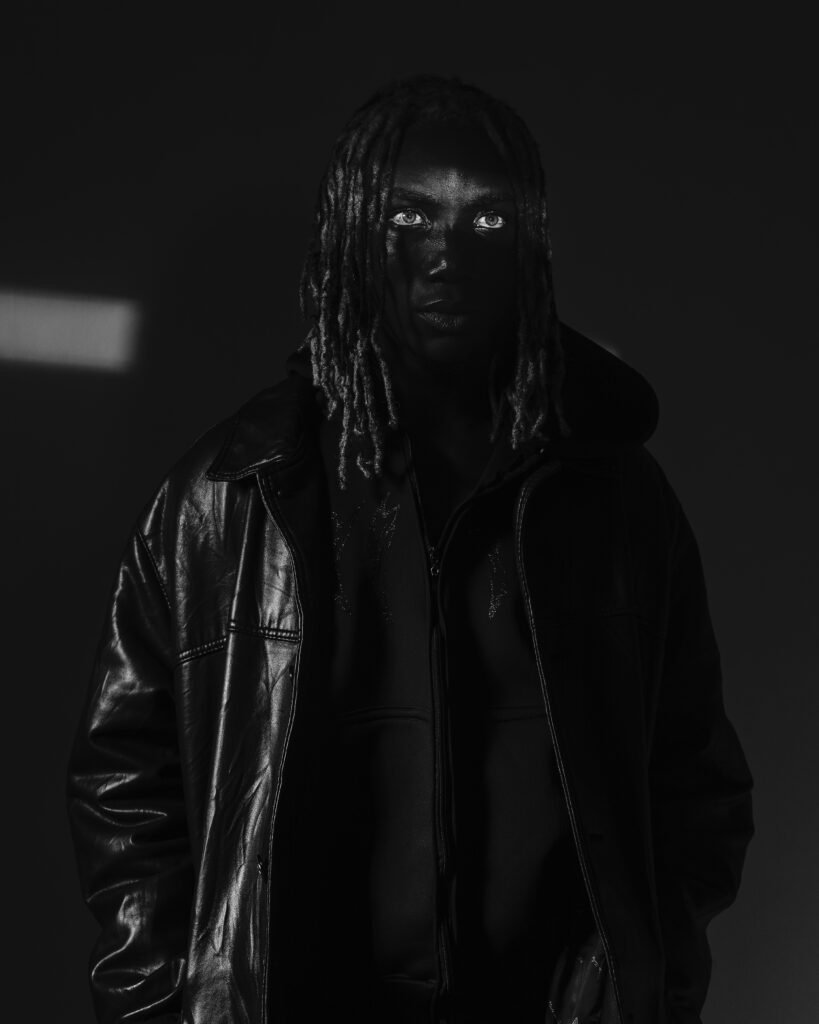
Rolling Stone Africa: You’ve been selected as part of Rolling Stone Africa’s “Future of Music.” What does it mean to you to be recognized as an artist who represents the future of music?
Xlimkid: I feel honored to be part of the rolling stone Future of Africa Music. It means the world to me at this stage of my career. This has motivated me a lot.
Rolling Stone Africa: How do you see the evolution of hip-hop music in recent years? What excites or challenges you about these changes, and how do you imagine the future of hip-hop music?
Xlimkid: Everything is changing right now even. In two years, hip-hop will be up again. Hip-hop is already up, but people are going to see it how they see afrobeats. We are going to blend with the world. You’re going to see Xlimkid featuring Travis Scott. You’re going to see XlimKid featuring Lil Durk.
Rolling Stone Africa: If you could imagine a truly futuristic or unexpected collaboration—or simply one you’d be proud to share with your community in the coming years—which African or international artist would you choose, and why?
Xlimkid: I love a lot of artistes due to my love for music and my versatility but to choose from whom I would love to collaborate with at this point, I think it would be NBA Youngboy.
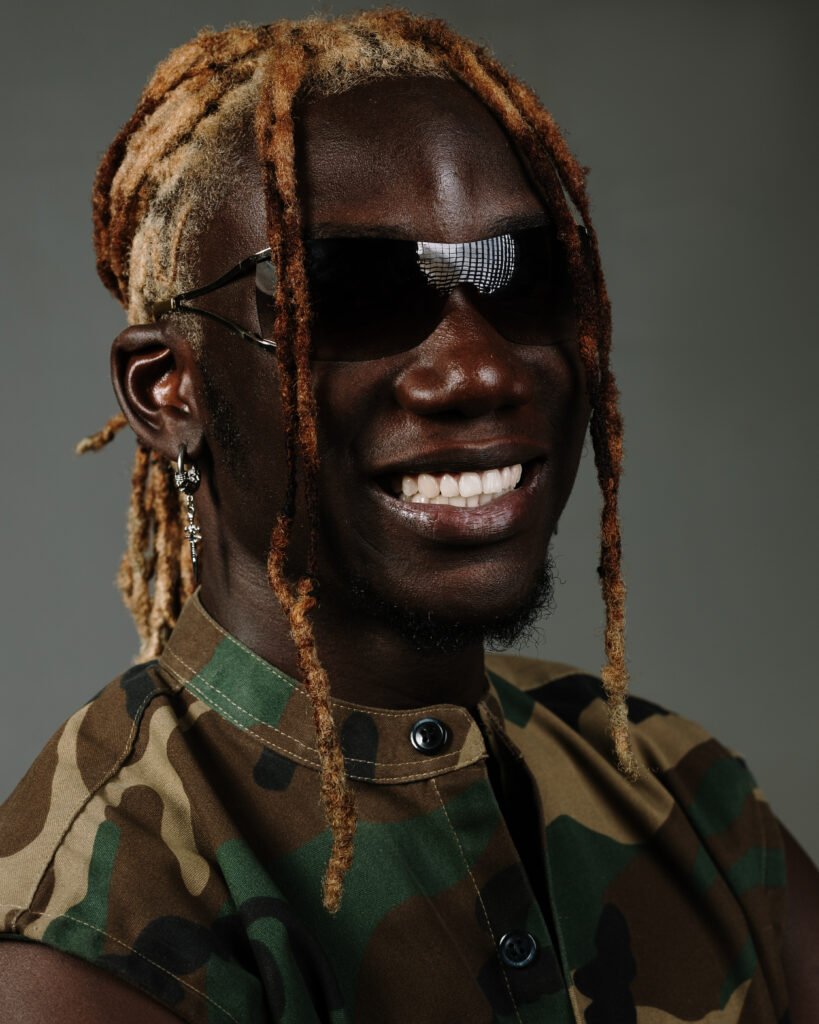
The artist then offered a more intimate glimpse into his world, sharing the formative experiences that shaped his unique artistic vision, and the inspirations that drive his creativity.
Rolling Stone Africa: If you could describe yourself with one song, what song would that be?
Xlimkid: I can’t really be specific because I have so many songs with so many different moods. I’m many different packages in one. It would be kind of hard to describe who I am and everything about me but if I had to choose, I’d say one of my songs “Before I go”. Yeah, this song really talks about my demeanor a little bit. Who I really am, where I’m from, what I want to do, my ambitions, it summarizes everything in one, I love that song so much. I released it a couple years ago and it’s still my favorite.
Rolling Stone Africa: What’s your earliest memory of music?
Xlimkid: I used to watch my mom lead the whole band in church. She used to teach kids in the Sunday school hymns and all that. Every morning, she’d wake us up with hymns and songs so music has been part of my life since I was born. My mom told me that before she gave birth to me, she was always in the church alone singing and praying to God for a child and she got me. So it’s like music has been part of my life since I was born and even before I was born. I love music and everybody in my family loves music just as much as I do.
Rolling Stone Africa: Did your dad work in the church, too, like your mum?
Xlimkid: My dad has always been a traditional person. He’s from a royal home so he didn’t believe in Jesus. He’s all about the kingship stuff, the shrine, and traditional music. Both my parents are musically inclined, they just love it and it’s a part of us.
I love music as a whole, but I love hip-hop so much. Because of the lifestyle... Hip-hop doesn't really hide anything"
Xlimkid
Rolling Stone Africa: Your family dynamic is really cool. It seems to be more centred around spirituality instead of a singular religion.
Xlimkid: And it’s crazy because my dad initially didn’t like the fact that my mum was always bringing pastors to the house. But they’re grown now and understand that everyone has the right to their own belief systems. I think their beliefs have really shaped my understanding about life and music, how to make it resonate with different types of people who believe in different types of things. In my music, I talk about christianity and God but I also highlight that we cannot do without our traditions. Me doing music and having some success has really calmed them down. I speak to them sometimes and I see they are proud.
Rolling Stone Africa: One thing I find really interesting about your music is how emotional it can be. Where does that come from?
Xlimkid: I talk about a lot of pain. I got it from my childhood and living with my parents and experiences with my dad and mom. Somehow there was no peace in the house because they were always fighting about something. It was kind of close to a broken home. My mum would tell me some of the bad things my dad was doing when I was a little boy and I’d try to put myself in her shoes sometimes. I try to dive into that and channel that pain in my songs.
Rolling Stone Africa: At what point did you decide to begin taking music seriously?
Xlimkid: When I was a kid, I had this feeling that I was different because I see things differently. I remember this day during easter, my mum served me fufu and I went to sit somewhere. Before I even put my hands in the food, I was just quiet for 5 minutes thinking about who I was going to be. I loved football and I loved everything about media like acting. Even in school I was part of the choir. At the time, I was a captain of the soccer team and a main character in our drama club. So I kept thinking “What am I going to do? Where’s my position in this universe?” I then decided to just go with the flow.
In secondary school, I had this friend who was an artist and I was around him like his manager. He wasn’t really serious about it but because I love music so much, I was so happy that a friend of mine who was really close to me was doing it. I just wanted to know how they come up with songs like how they put voices on beats and all that. It was so interesting to me. One day after school, we went to the studio and they played a beat. I was just nodding my head, murmuring, and coming up with melodies. The producer was like “Yo this is hard” and it took me about 30 minutes to write a full verse. We eventually released the song and everybody went crazy. It was in English and even my dad who doesn’t really understand English loved it because of the melodies. That was the point where I decided I can do more of that if I really give it my all. That was the spark for me.
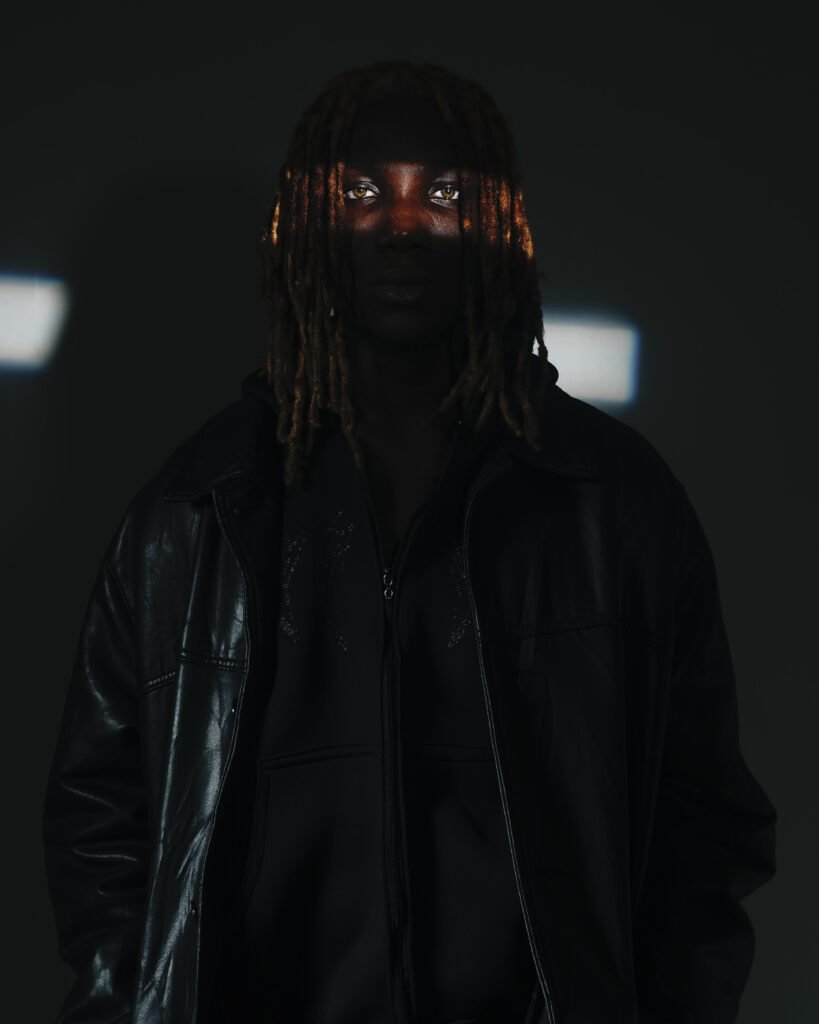
Rolling Stone Africa: It does sound like you had a lot of people around you who believed in you at the start. Who are some of the people who inspire you as an artist?
Xlimkid: Sarkodie really inspired me. Even in school they always called me Sarkodie. Whenever there was a musical debate back then, I’d always defend him no matter what and now I have two songs with him. It’s really a dream come true.
Rolling Stone Africa: How did those collaborations come about?
Xlimkid: Since I decided to be more serious about this music thing, I realized it’s not about just sitting down in your room, cause I had nothing. I even had no phone. I had no money for a phone. I had no studio. I had nothing. So, I had to go out to look for opportunities. One day I was sitting outside with my friend who lives in East Legon around these rich people. All of a sudden Sarkodie passed by in his Range Rover. My friend wanted us to go freestyle for him but he had entered the house. However, one of Sakodie’s people came out of the house and he was just patrolling. The moment he saw us, he was like, ” You guys are artists?” And we said, “Yeah.” He took our numbers and we sent our songs to him. He loved my music and was playing it to Sarkodie anytime they moved in their car for two years. He’d always call me to tell me that Sak always gave dope responses anytime he played my songs. I was constantly getting this information from his camp secretly. I don’t think he even knew about it. Eventually, last year, they sent me a song called “Truama”. I opened it and saw that he had left me a verse and he promised to put it on his project, The championship. It didn’t take me two days to record it. The next day I sent it back to him and he loved it. He said in an interview that was his favorite song on the tape.
"The new generation is more aware about investing, how to improve our crafts, and how to blend our culture into whatever we are doing"
Xlimkid
Rolling Stone Africa: To be a trap and drill artist, you have to possess a high level of conviction and self belief. Is that what drew you to the genre?
Xlimkid: I love music as a whole, but I love hip-hop so much. I think it’s because of the lifestyle around it, how real everything is around it. Hip-hop doesn’t really hide anything. The artists say what they do. It’s like there is no filter to anything. I can sing highlife or gospel. I even classify some of my songs as gospel because I talk about the power of the human mind. But there are sometimes boundaries to what you can say. With hip-hop, there is no filter.
Rolling Stone Africa: There are so many things happening in Ghanaian youth culture. What is your favourite thing right now?
Xlimkid: I think the awareness. The new generation is more aware about investing, how to improve our crafts, and how to blend our culture into whatever we are doing. Thanks to the internet, we’re also more connected to the outside world.

